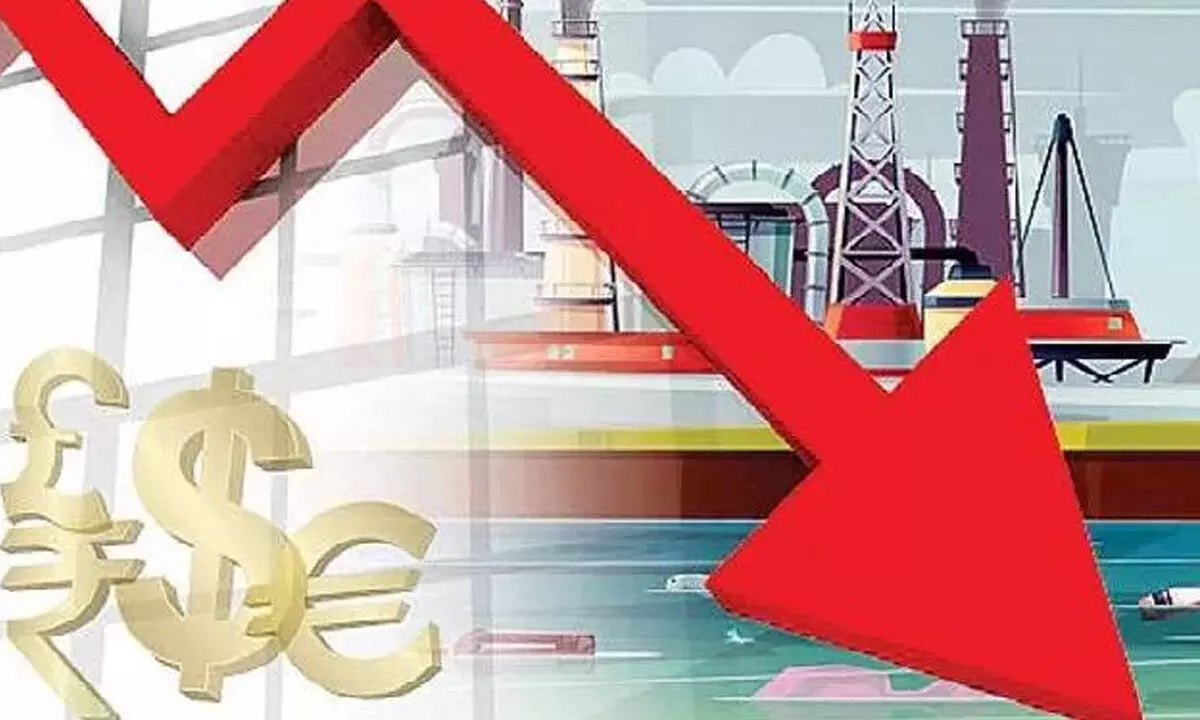Germany heading for recession?

Germany's economy is on the brink of recession as the country's gross domestic product (GDP) in the third quarter (Q3) of 2023 declined by 0.1 per cent compared to the previous quarter, according to confirmed figures published by the Federal Statistical Office (Destatis).
Berlin: Germany's economy is on the brink of recession as the country's gross domestic product (GDP) in the third quarter (Q3) of 2023 declined by 0.1 per cent compared to the previous quarter, according to confirmed figures published by the Federal Statistical Office (Destatis). "After the weak economic development seen in the first half of 2023, the German economy began the second half of the year with a slight drop in performance," Destatis President Ruth Brand was quoted by Xinhua news agency as saying.
Economic output almost stagnated in the first two quarters of the year. While government spending rose slightly by 0.2 per cent compared to the previous quarter, private consumption dropped by 0.3 per cent, according to Destatis. In a year-on-year comparison, consumer spending even fell 2.0 per cent due to high price levels.
German consumers are spending less on food and beverages, restaurant and accommodation services, and short-lived goods, such as clothing in particular. "The persistently high prices continued to have a noticeable effect," Destatis said.
Before recording a sharp drop to 4.5 per cent in September, inflation in Germany was normalizing more slowly than in other eurozone countries. In October, inflation in Europe's largest economy further declined to 3.8 per cent, according to official figures. The weak global economy also left its mark on Germany's important export industry. The country's total exports of goods and services in Q3 fell by 0.8 per cent compared with the previous quarter, while imports even declined by 1.3 per cent, according to Destatis.
German companies are, however, more optimistic about the future. The ifo Business Climate Index, also published on Friday, rose from 86.9 points in October to 87.3 points in November, the third increase in a row. "The German economy is stabilizing, albeit at a low level," Clemens Fuest, president of the ifo Institute, said in a statement. Companies assessed their current business situation as slightly better and "expectations for the coming months were also less pessimistic."
The German economy is "still navigating through choppy waters," the country's central bank (Bundesbank) said in its monthly report for November earlier this week. Germany's economy is set to "recover only arduously from the period of weakness" that has continued since the outbreak of the Russia-Ukraine conflict.
Economic institutes and the German government expect the country's economy to continue to shrink in 2023 before picking up again in 2024. The German Council of Economic Experts forecasts GDP to grow by 0.7 per cent next year, while the German government expects an upturn of 1.3 per cent.








